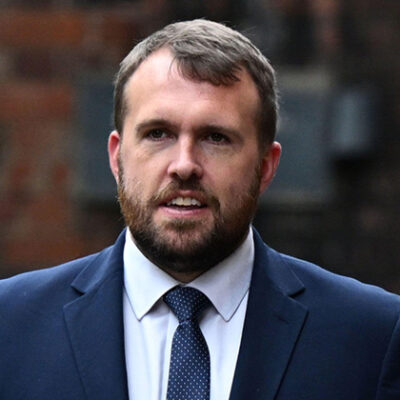A group of Conservative MPs has warned the chancellor not to make “indefensible” cuts to education spending in his autumn statement this week, it has been reported.
According to The Times, 28 Tory politicians have written to Jeremy Hunt to say it “would not be morally right” to cut education spending when pupils are trying to catch-up on pandemic learning loss. The include former education secretary Kit Malthouse and other ex-Department for Education ministers.
It follows reports that Hunt is considering sticking to the 2021 spending review allocations, which were meant to increase school funding by 2.2 per cent in real-terms by 2024. He will deliver his autumn statement on Thursday.
However, the Institute for Fiscal Studies has said that current inflation means schools will be 3 per cent worse-off by 2024 than they were in 2010.
The MPs reportedly wrote: “We appreciate the need for sound money and fiscal responsibility. However, we believe these cuts should be made within a framework of priorities rather than across the board.
“In particular, we believe it would be indefensible to cut education funding. On the contrary, we would urge you to invest more in the schools budget, particularly given the impact of the pandemic on children and their education.”
Leaders face having to cut staff roles
It follows severe warnings from across the schools community that the funding situation is untenable, with spiralling energy bills and other costs, as well as unfunded staff pay rises.
Last week, the Confederation of School Trusts warned half its members could be in deficit within two years.
Headteachers have also warned they face having to cut teacher and support staff roles to balance the books.
MPs will also likely have been spooked by the re-launch of the unions’ School Cuts campaign, and new analysis predicting that 90 per cent of schools will have lower per pupil funding in real terms in 2023-24, compared to the current financial year.
The widespread cuts to school budgets mean even schools in the constituencies of education ministers will be £7.4 million poorer in the next financial year in real terms.
In their letter, the MPs continued: “It would not be morally right to cut education at a time when so many children, teachers and staff are still working so hard to rectify the damage caused by Covid-19.
“This damage is reflected most sharply in the attainment gap for disadvantaged pupils, which is at its widest in a decade.”
Hunt hints at continuing school energy support
It comes as the chancellor hinted that energy bill support for schools – which is currently only guaranteed until April – will continue into the next financial year.
Speaking to BBC News at the weekend, Hunt said the “progress we’ve made in state education has been extraordinary and we want to make sure that nothing happens now that undermines that progress”.
He added that “strong public services including a strong education system, schools, further education, are actually very important to the future of the economy as well”.
Hunt acknowledged that “schools, hospitals, all our public services, are having to deal with the cost of inflation”, and said the government would aim to “tackle the root cause of those pressures” faced by schools seeing rising energy bills.
“What we need to do is a combination of short-term support for people who are really struggling, and absolutely schools and public services are in that category, but also a plan that says ‘this is how we’re going to get through this’.
“This is how, for example, on energy, which is I think often the biggest worry for schools, it’s not just the support that we give you this year and next year, it’s also the long-term plan to make sure we can bring down energy prices to much lower levels.”
While some schools are facing sky-rocketing energy bills, unfunded staff pay rises are likely to be causing more of a headache for balancing the books. Staffing costs generally make up between 70 to 80 per cent of a school’s expenditure.
Ex-minister says DfE budget should ‘not be touched’
Former schools minister Jonathan Gullis told Schools Week that during his time at the department “we were making a very strong case that we should not be touched”.
Gullis said he was not directly privy to discussions with the Treasury, but that “options had been presented” which showed a “challenging picture”.

Ministers were “making it very clear these options were unpalatable and that this would undo a decade of great work by a Conservative government in the education space”.
He also said that the fact that so much DfE cash goes directly to institutions like schools leaving little room for cuts that don’t affect delivery was the “crux of the argument”.
“There’s not a lot of cash just swimming around in the department,” he said.
But he claimed it would be “really challenging” for the government to increase school funding in line with inflation.
“I would hope that this government would protect the current budget that’s in place, and that [it] would make a commitment, as the economy starts to correct itself…that the very first department to see any severe increase in funding, alongside our National Health Service, will be the Department for Education.”
















Your thoughts